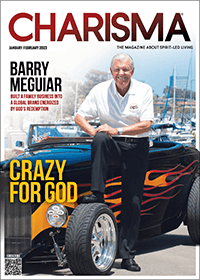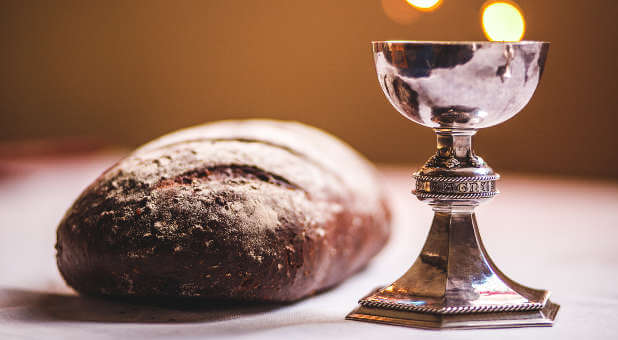Note: In this brief article, I will not deal with the various historical views regarding the essence of Holy Communion.
Nowadays, many evangelical churches interpret “sola scriptura” to mean that they can do whatever they want as long as there’s some adherence to the Bible. We fail to realize that the early church observed certain practices and methodologies that should not be compromised.
Many seeker-sensitive churches rarely observe communion because it takes too much time away from the service. Their goal to have a streamlined 60-75 minute service, that appeals to the unchurched, is countered by the fact that people crave an experience. A witness to this is that many people have no issue spending three hours at a concert or sporting event.
Hence, they bypass the communion table and merely have an “altar.” We should note that the early church often celebrated communion after the original apostles passed away.
The following are seven reasons why churches should celebrate the Lord’s supper weekly:
1. It keeps the services Christ-centered instead of man-centered.
Too often, evangelical churches are based upon either the mega charisma of the lead pastor or a talented worship ensemble. Weekly communion keeps the services Christ and cross-centered, which is why many historical denominations have continued this practice. Since their birth, (Roman Catholic and Eastern Orthodox churches), even without great preaching, and despite their priests being transferred to another parish every three to seven years, they have observed the weekly communion.
2. We will ensure that the gospel is proclaimed weekly, irrespective of the sermon.
Often, non-Christians are not presented the gospel regularly because the sermon topic is focused on edifying the church instead of saving the lost. However, the apostle Paul tells us that every time we have communion, we are proclaiming the Lord’s death until He comes (1 Cor. 11:26).
3. The New Testament historical account of the original church in Acts indicate the church observed communion every time they met.
Acts 20:7: “On the first day of the week, when we were gathered together to break bread…”
First Corinthians 11:20 says: “When you come together, it is not the Lord’s Supper that you eat.” The phrase “come together” defines gathering as the church. Acts 2:42 lists the breaking of bread as one of the essential practices of the church, along with teaching, corporate prayer and fellowship.
4. Paul assumed communion was celebrated every week.
First Corinthians 1:17 reads: “When you come together, it is not the Lord’s Supper that you eat..”
5. The early church fathers practiced weekly observance of communion.
The catacombs in Rome contain many frescos telling us what the Christians living between c.100–c.350 AD believed, and how they lived out that faith. Prominent among these paintings is the early church’s priority regarding the observance of Holy Communion.
Justin Martyr, in the year 155 AD, wrote one of the most detailed accounts of a typical church service.
“On the day called Sunday, all who live in cities or in the country gather together to one place, and the memoirs of the apostles or the writings of the prophets are read, as long as time permits; then, when the reader has ceased, the president verbally instructs, and exhorts to the imitation of these good things. Then we all rise together and pray, and, as we before said, when our prayer is ended, bread and wine and water are brought…”.
Tertullian (c. 155 – 250 A.D.)
“The Sacrament of the Eucharist, which the Lord commanded to be taken at meal times and by all, we take even before daybreak in congregations…”.
St. Ignatius of Antioch (c. 110 A.D.)
“They [i.e. the Gnostics] abstain from the Eucharist and from prayer, because they do not confess that THE EUCHARIST IS THE FLESH OF OUR SAVIOR JESUS CHRIST, flesh which suffered for our sins and which the Father, in his goodness, raised up again” (Letter to Smyrnians 7:1).
St. Cyprian of Carthage (c. 200 – 258 A.D.)
“And we ask that this Bread be given us daily, so that we who are in Christ and daily receive THE EUCHARIST AS THE FOOD OF SALVATION, may not, by falling into some more grievous sin and then in abstaining from communicating, be withheld from the heavenly Bread, and be separated from Christ’s Body…”.
St. Basil the Great (c. 330 – 379 A.D.)
“To communicate each day and to partake of the holy Body and Blood of Christ is good and beneficial;…We ourselves communicate four times each week…and on other days if there is a commemoration of any saint…” (Letter of Basil to a Patrician Lady Caesaria).
St. John Chrysostom (c. 344 – 407 A.D.) wrote how essential holy communion was to the faithful.
“Reverence, therefore, reverence this table, of which we are all communicants! Christ, slain for us, the SACRIFICIAL VICTIM WHO IS PLACED THEREON!” (Homilies on Romans 8:8). The lack of reverence, tradition, and communion in many Evangelical churches is probably one main reason so many are “deconstructing “and falling away! It is easy to pull up a tree that has shallow roots!

The apostle Paul reminds us in 1 Corinthians 11:17-34 that the Holy Communion is an outward expression of believers’ “common union” as the body of Christ (1 Cor. 12). When we violate our common union by mistreating others during Holy Communion, we are judged by God for not properly discerning the Body of Christ (1 Cor. 11:27-32).
7.The early first-century church document “the Dediche,” written as a guide for church practice, assumed the weekly observance of communion.
“On the Lord’s day, when you have been gathered together, break bread and celebrate the Eucharist.”
In conclusion, I pray that the contemporary evangelical church no longer jettisons essential biblical and historical teachings and practices. We must be deeply rooted in our theologically and historically rich past so that we can have a bright future.
Bring Charisma magazine home with a subscription today!
Dr. Joseph Mattera is an internationally-known author, consultant and theologian whose mission is to influence leaders who influence culture. He is the founding pastor of Resurrection Church, and leads several organizations, including The U.S. Coalition of Apostolic Leaders and Christ Covenant Coalition. Dr. Mattera is the author of 13 bestselling books, including his latest “The Purpose, Power and Process of Prophetic Ministry,” and is renowned for applying Scripture to contemporary culture.












































